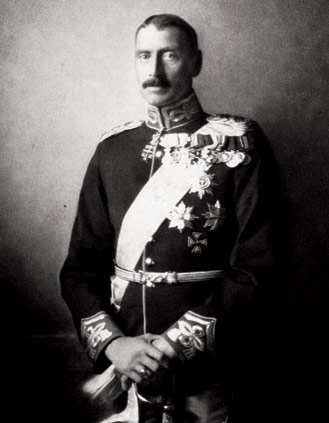Telegram Crisis on:
[Wikipedia]
[Google]
[Amazon]
 The Telegram Crisis was a diplomatic crisis between
The Telegram Crisis was a diplomatic crisis between
 The Telegram Crisis was a diplomatic crisis between
The Telegram Crisis was a diplomatic crisis between Denmark
Denmark is a Nordic countries, Nordic country in Northern Europe. It is the metropole and most populous constituent of the Kingdom of Denmark,, . also known as the Danish Realm, a constitutionally unitary state that includes the Autonomous a ...
and Germany
Germany, officially the Federal Republic of Germany, is a country in Central Europe. It lies between the Baltic Sea and the North Sea to the north and the Alps to the south. Its sixteen States of Germany, constituent states have a total popu ...
in October and November 1942, during the German occupation of Denmark
At the outset of World War II in September 1939, Denmark declared itself Neutral countries in World War II, neutral, but that neutrality did not prevent Nazi Germany from Military occupation, occupying the country soon after the outbreak of ...
.
The crisis was triggered by a telegram
Telegraphy is the long-distance transmission of messages where the sender uses symbolic codes, known to the recipient, rather than a physical exchange of an object bearing the message. Thus flag semaphore is a method of telegraphy, whereas pi ...
from King Christian X of Denmark
Christian X (; 26 September 1870 – 20 April 1947) was King of Denmark from 1912 until his death in 1947, and the only King of Iceland as Kristján X, holding the title as a result of the personal union between Denmark and independent Icel ...
to Adolf Hitler
Adolf Hitler (20 April 1889 – 30 April 1945) was an Austrian-born German politician who was the dictator of Nazi Germany from 1933 until Death of Adolf Hitler, his suicide in 1945. Adolf Hitler's rise to power, He rose to power as the lea ...
, acknowledging Hitler's congratulations on the occasion of the King's 72nd birthday on September 26, 1942. Hitler was outraged by the perfunctory response of ''Spreche Meinen besten Dank aus. Chr. Rex'' ( English: "Giving my best thanks, King Christian"). After this perceived slight, Hitler recalled his ambassador from Copenhagen
Copenhagen ( ) is the capital and most populous city of Denmark, with a population of 1.4 million in the Urban area of Copenhagen, urban area. The city is situated on the islands of Zealand and Amager, separated from Malmö, Sweden, by the ...
and expelled the Danish ambassador from Germany. Attempts to placate Hitler, including a proposal of sending Crown Prince Frederik to Berlin
Berlin ( ; ) is the Capital of Germany, capital and largest city of Germany, by both area and List of cities in Germany by population, population. With 3.7 million inhabitants, it has the List of cities in the European Union by population withi ...
to apologize to Hitler personally, were refused.
In early November 1942, the plenipotentiary
A ''plenipotentiary'' (from the Latin ''plenus'' "full" and ''potens'' "powerful") is a diplomat who has full powers—authorization to sign a treaty or convention on behalf of a sovereign. When used as a noun more generally, the word can als ...
, Cecil von Renthe-Fink, was replaced by Werner Best
Karl Rudolf Werner Best (10 July 1903 – 23 June 1989) was a German jurist, police chief, SS-''Obergruppenführer'', Nazi Party leader, and theoretician from Darmstadt. He was the first chief of Department 1 of the Gestapo, Nazi Germany's secret ...
and the commander of the German forces in Denmark Erich Lüdke was replaced with the more heavy-handed General Hermann von Hanneken, and all remaining Danish troops were ordered out of Jutland
Jutland (; , ''Jyske Halvø'' or ''Cimbriske Halvø''; , ''Kimbrische Halbinsel'' or ''Jütische Halbinsel'') is a peninsula of Northern Europe that forms the continental portion of Denmark and part of northern Germany (Schleswig-Holstein). It ...
. German pressure also resulted in the dismissal of the government led by Vilhelm Buhl
Vilhelm Buhl (16 October 1881 – 18 December 1954) was a Danish politician, who served twice as Prime Minister of Denmark, from May-November 1942 during the Nazi occupation of Denmark, and again after Danish Liberation Day from May-November 194 ...
and its replacement with a new cabinet led by non-party member and veteran diplomat Erik Scavenius
Erik Julius Christian Scavenius (; 13 July 1877 – 29 November 1962) was the Danish foreign minister from 1909 to 1910, 1913 to 1920 and 1940 to 1943, and prime minister from 1942 to 1943, during the occupation of Denmark until the Danish elect ...
, whom the Germans expected to be more cooperative.
The background to the crisis was not only the famous telegram, but also a growing dissatisfaction in the German leadership—especially Hitler—with their occupation of Denmark, where the resistance movement
A resistance movement is an organized group of people that tries to resist or try to overthrow a government or an occupying power, causing disruption and unrest in civil order and stability. Such a movement may seek to achieve its goals through ei ...
was starting to be felt.
References
* * {{cbignore, bot=medic Denmark in World War II 20th century in Denmark Diplomatic crises of the 20th century Denmark–Germany relations 1942 in Denmark 1942 in Germany